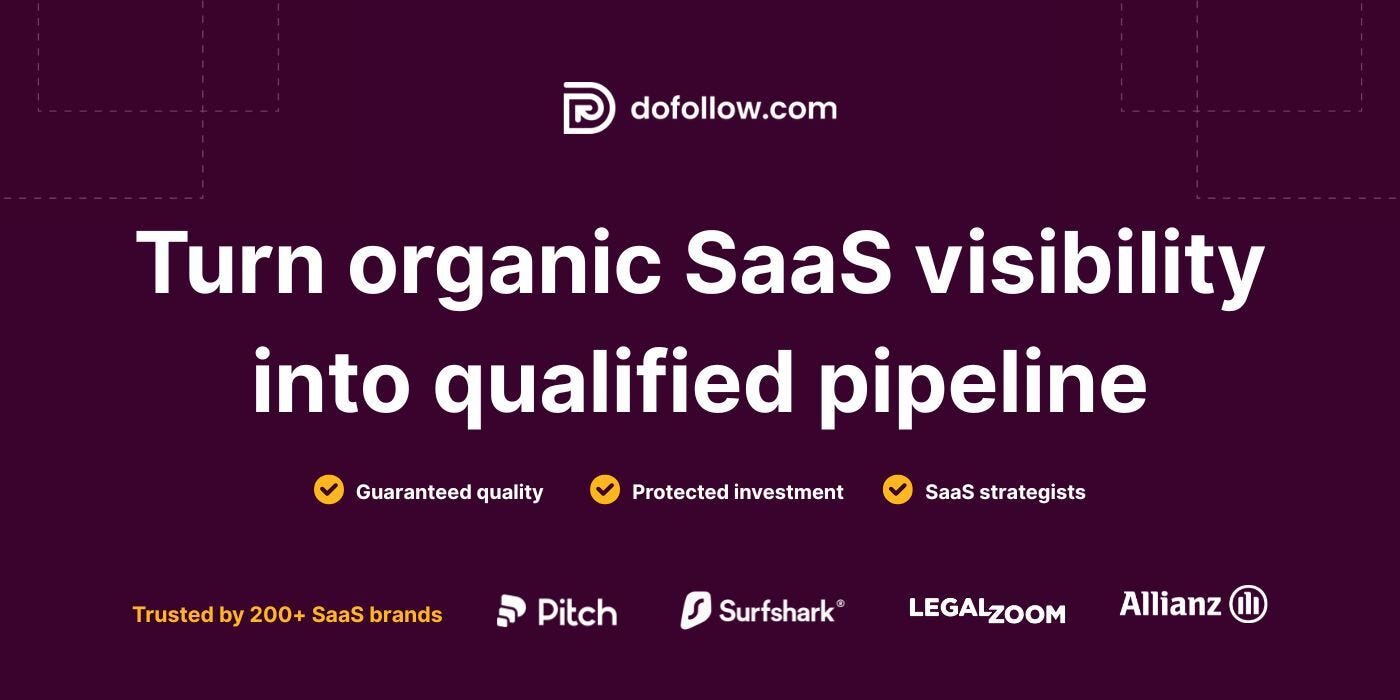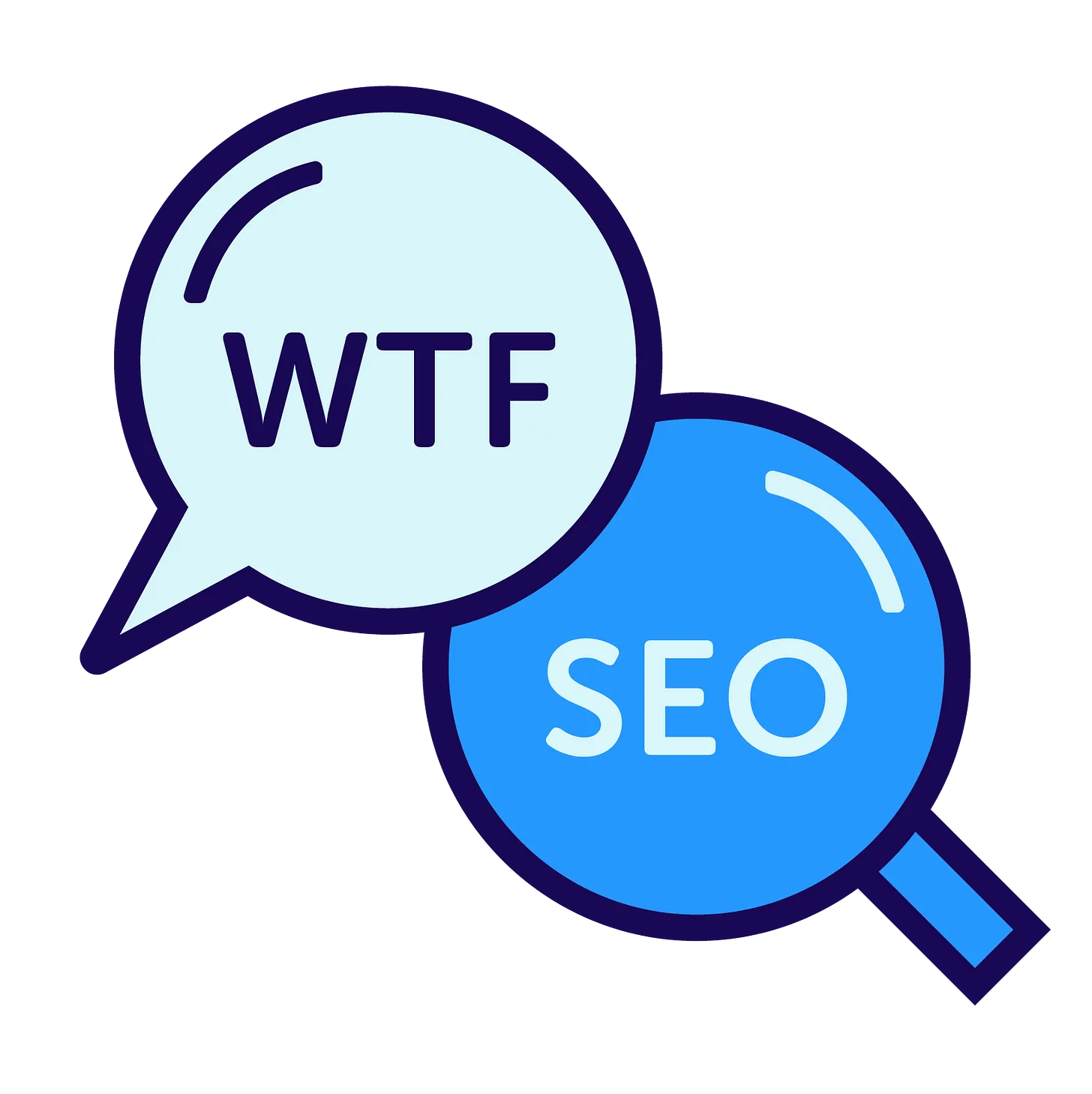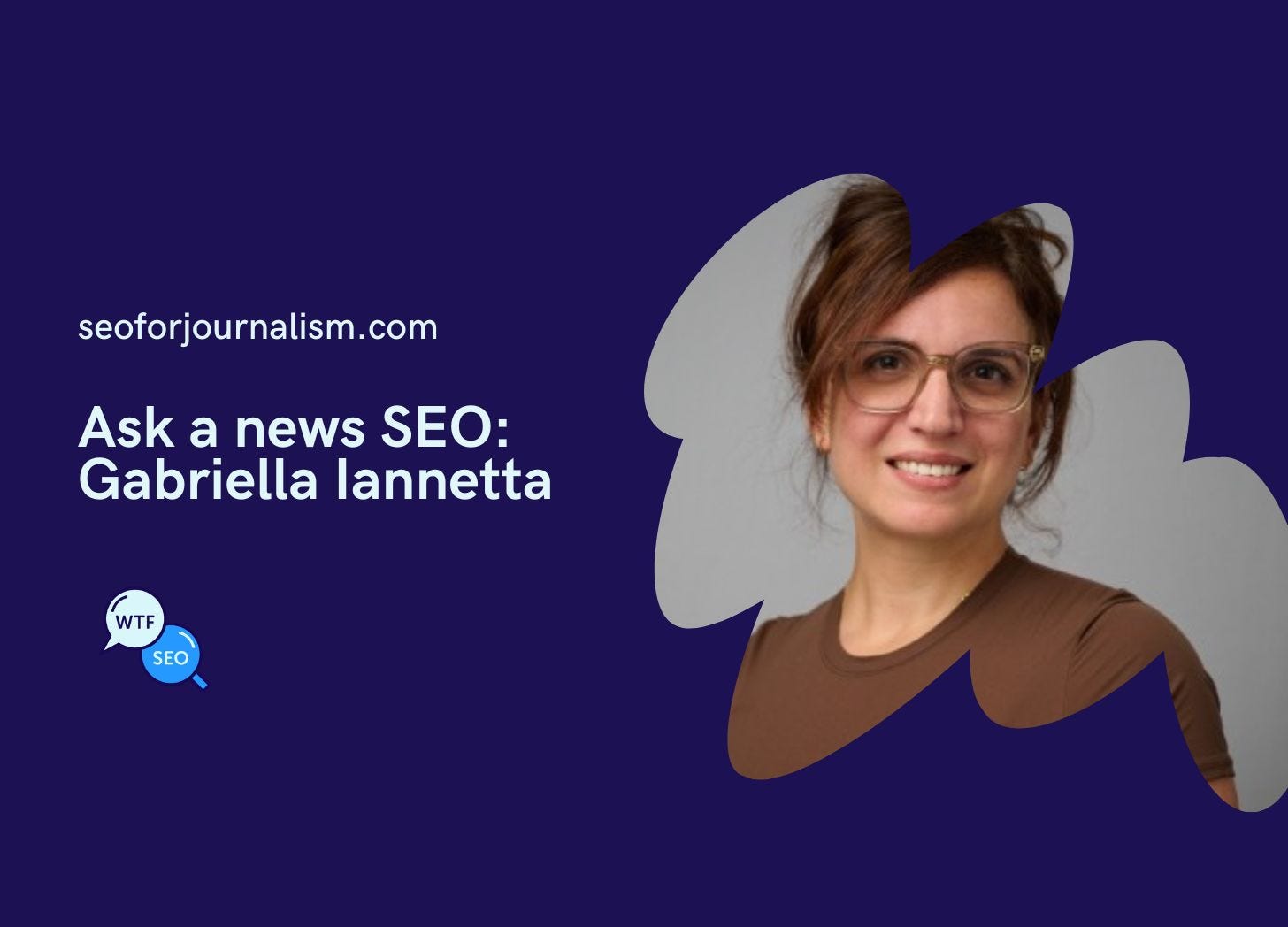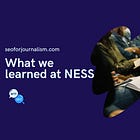Ask a News SEO: Gabriella Iannetta
We chatted with Realtor.com's Gabriella Iannetta. We cover how publishers can adapt SEO strategies for LLMs and ChatGPT while maintaining organic search results
#SPONSORED
dofollow.com: SaaS visibility compounds like revenue.
AI features and Google’s constant updates keep stealing clicks and credibility. That’s why I use dofollow.com. They help B2B SaaS brands like Surfshark, Pitch, and Experian earn trusted, high-authority backlinks that drive rankings, traffic, and visibility through every algorithm shift.
Hello, and welcome back. Jessie here, reporting live from London, England — again! I’m thrilled to be back with Guardian colleagues whilst also trying to get my paws on tickets to Paddington: The Musical.
This week: Ask a news SEO with Gabriella Iannetta! We chatted about AI, how publishers can adapt SEO strategies for LLMs and ChatGPT, while also keeping a focus on the value of the ‘bread and butter’ content.
Happening soon: Join us to discuss using Google Trends to turn data into content ideas with special guest Louisa Frahm, SEO Director for ESPN! RSVP for our November 19 community call in partnership with Trisolute News Dashboard.
Let’s get it.
THE INTERVIEW
WTF is SEO?: What is the value of getting our content picked up and surfaced in LLMs? How do we communicate that value to stakeholders?
Gabriella Iannetta: Whatever the new technology — especially those seeing the type of growth that ChatGPT and LLMs are having — you want to be there. You want to be where people are searching and looking for things. We’ve seen this disruption before with multiple social media platforms. It’s not something to ignore.
If LLMs are taking up 10 to 20 per cent of visibility in search in a way they haven’t before, then the question becomes, “how can I use the content I already have — either by refreshing it or repurposing it — so it shows up?” Or, “how can I fill a gap that LLMs are currently filling, but that my publication wasn’t ranking for in organic search?”
We want to be discovered and be discoverable.
A lot of best practices that work for SEO also work for LLMs. I’ve been explaining to my team; it’s not anything new or crazy. It’s more about refining the best practices, and maybe turning up the heat on aspects of our strategy.
I also believe there’s a relationship between people who use LLMs and Google Search. With ChatGPT, you might ask something super specific, like, “I’m going to dinner tonight at this place, what’s the weather going to be?” You can find the answer in organic search, but with AI taking over simple, quick-answer questions, it doesn’t really make sense for publishers to write about that anymore.
Instead, for organic search, it’s more about taking an educational approach. Yes, ChatGPT does source information [from Google’s index], but we also know it can make mistakes. It doesn’t always grasp nuanced topics the way a human can.
That’s why I think original content — especially content with a clear perspective or opinion — is going to help publishers stand out. It’s about visibility, trustworthiness and credibility, maybe more than ever.
WTF is SEO?: What KPIs do you think are valuable to track, measure and report on? Have those metrics changed?
Gabriella Iannetta: These are conversations we’re having all the time, especially when we want to do something a little riskier. For example, experimenting on social platforms that could help tie the relationship between search, LLMs and visibility in AI features, and hope organic picks up on that, too.
What’s the KPI there? It’s still going to be organic search visitors — that’s always the priority. But, in terms of engagement metrics, are readers returning? Is our content being mentioned? Is our visibility growing? How are we ranking?
WTF is SEO?: How do we balance a genuine desire to experiment with AI while maintaining strong performance in organic search?
Gabriella Iannetta: I might think a little simply about this, but simple is good. If LLMs are taking up between 10 and 20 per cent of market share, maybe we just start with 10 per cent of our time trying to understand what’s working. What is this space exactly? Let’s put out some content and see how it works for us.
Implementing AI to our editorial process has been a lot of effort upfront, and we continue to expand on it. There is still a big human list for fact-checking and editing, but we look at AI as a way to assist with data, formatting or facts. AI can also help with making content more personalized for certain regions or interests, based on our original reporting. There are so many possibilities for AI that do not impact editorial integrity.
At the same time, we still need to focus on the “bread and butter” content — the stuff that consistently works, ranks well and builds loyalty with our audience.
WTF is SEO?: What ways are you using AI right now that are particularly helpful?
Gabriella Iannetta: I’m using AI internally for work I was previously doing manually. It helps clean up my pitch list and do analysis to find the best times of day for search traffic. It has helped with data analysis and wrangling so I don’t have to spend all day working through it.
It’s actually reinforced something for me. When I first started learning about AI, it felt kind of scary. You wonder, “is this going to take my job? Is it going to take over?” But in reality, it’s done the opposite. It reinforced what I know as an expert, and what I know from experience. I am able to recognize nuanced trends that AI can’t. For me, it’s more of a tool that helps clean things up and get me to the answer a little bit quicker.
WTF is SEO?: What are the original or foundational SEO concepts, habits or strategies that publishers really need to continue to focus on?
Gabriella Iannetta: It’s not reinventing the wheel.
A million people have said this, but you need to care about E.E.A.T. You need to have that authority and be seen as a trusted source — especially now, as publisher visibility keeps narrowing.
For example, Google News isn’t even something I really look at anymore. At this point, I’m just too small of a publisher to show up there, and while we’d like to, it’s hard to justify building a strategy around it.
So it’s about showing up in search [where makes sense] — using the right keywords and linking out as much as possible. Internal linking has always been important, but it’s one of those levers I’m trying to turn the heat up on.
We can’t win by just aggregating content anymore. If you are talking about something that was reported for somewhere else, link to them, but also use your insight and sources to tell the rest of that story.
You want to care about content clustering. It’s still important to understand your content gaps. You want to know where you’re winning, and whether those wins connect to a larger ecosystem you can tap into.
#SPONSORED - The Classifieds
Get your company in front of more than 13,500 writers, editors and digital marketers working in news and publishing. Sponsor the WTF is SEO? newsletter!
RECOMMENDED READING
Google news and updates
🤖 Barry Schwartz: Google to remove more search features including practice problems, nutrition facts, nearby offers and more.
🤖 Barry Schwartz: Google added a new user agent to the Google user-triggered fetchers named Google-CWS.
🤖 Matt Southern: Google AI Mode is starting to roll out agentic booking in Labs for restaurants, events and wellness tickets.
🤖 Google: We are updating features and will be removing support for some structured data in 2026.
🤖 Danny Goodwin: Google AI Overviews drive 61% drop in organic CTR, 68% in paid.
Even more recommended reading
💻 Roslyn Ayers How to build and lead a successful remote SEO team.
✏️ Claire Taylor How to build authority when no one knows you yet.
📹 Press Gazette: How TikTok inspired The New York Times’ vertical video strategy.
🤏 Kevin Indig: LLM traffic is shrinking.
🔍 Aleyda Solis: The top vertical players in AI search: A traffic trend tracker.
📈 Darren Shaw: Local search ranking factors: Your ultimate guide.
🔗 Joe Hall: JavaScript SEO best practices and what you should look for.
🎤 Matt Southern:Apple to lean on Google Gemini for its Siri overhaul, according to a report.
🍋 Barry Schwartz: Microsoft brings AI Search to Copilot — with an emphasis on citations.
What did you think of this week’s newsletter?
(Click to leave feedback.)
Catch up: Last week’s newsletter
Have something you’d like us to discuss? Send us a note on Twitter (Jessie or Shelby) or to our email: seoforjournalism@gmail.com.
Written by Jessie Willms and Shelby Blackley








